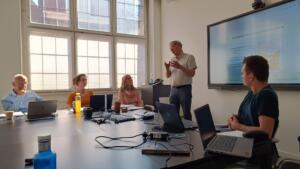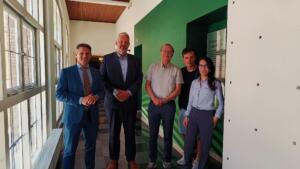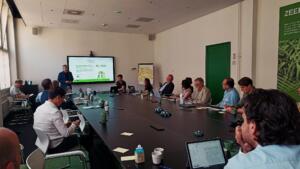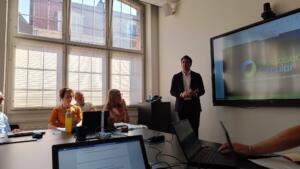Workshop in Zeeland : Biomodel4regions Horizon Europe project
July 03, 2024
On June 26, HCH, in collaboration with the Province of Zeeland, and supported by CBBD and ICLEI, organized and delivered a pivotal workshop to determine the first steps for co-developing a bioeconomy strategy for the Delta Region. The workshop is a crucial step to engage the quadruple helix in developing the Delta Region’s Bioeconomy Blueprint under Biomodel4Regions.
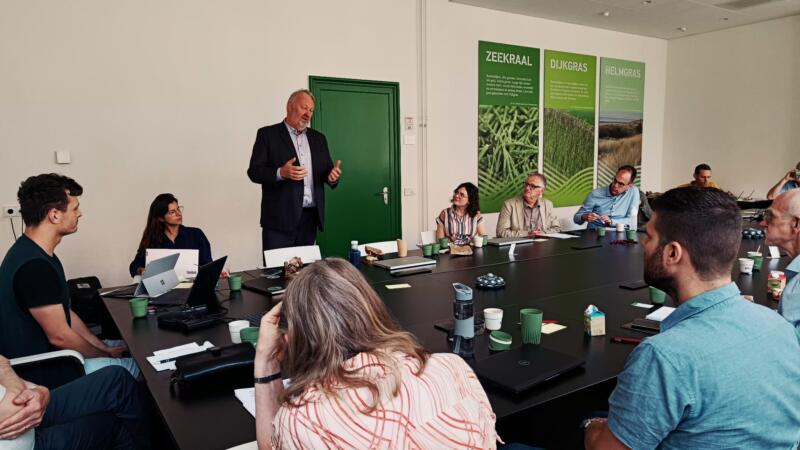
Creating a blueprint for the bioeconomy in the Delta region
In the Delta Region there is currently great momentum amongst stakeholders from the public, private, research, and civil society sectors: during the workshop on June 26 they expressed their wish to achieve a strong position at the bioeconomy space by becoming one of the world’s largest bioeconomy cluster. The Delta region includes the provinces of Zeeland, North-Brabant, and South-Holland, in the Netherlands, and East-Flanders and Gent, Belgium. The goals identified during the workshop for the region can be summarized as: develop the cross-regional collaboration and amongst sectors, build and share knowledge, clarify regulations, identify common needs, and develop and pursue the vision for the region.
The workshop was a crucial step to engage the quadruple helix in developing the Delta Region’s Bioeconomy Blueprint under Biomodel4Regions Horizon Europe project, which aims to support the implementation of innovative governance models at the local/regional level to achieve better-informed decision-making, social engagement and innovation to support and strengthen European and international science-policy interfaces to achieve sustainable development goals.
Identify and overcome barriers
Another key focus of the workshop was to consider the social, ecological, and economic impacts the region aims to achieve with its bioeconomy vision, as well as the barriers to implement this strategy. During these discussions, understanding and acceptance by the public and consumers emerged as a significant issue. As highlighted by Ralph Pessers (Wageningen University & Research), there are technical, governance-related, financial, operational, among other types of barriers. For instance, in addition to technical problems and scaling up challenges, consumer behaviour adaptation is a crucial determinant of the strategy’s success. A related issue is questioning the government’s role in facilitating this task. This will involve creating a good policy mix and adopting a long-term vision that will enable the development of projects, which require time.
Jo-Annes de Bat, Provincial Executive of Zeeland, highlighted four main barriers to establish bioeconomy strategies, providing a clear blueprint of key focus areas for the coming years :
Organizational issues: There are many networks and consultations, but roles and responsibilities need to be clearly defined.
Financial issues: There is plenty of funding available, but accessing and identifying the right funds is challenging.
Space: Zeeland has no more available space, requiring prioritization and choices.
Legislation: Governments are willing to support but lack the necessary tools, indicating a need for a different approach.
Key takeaways and next steps
Participants brought various perspectives from different roles in the value chain. This diversity was essential for tackling the major challenges in advancing the bioeconomy.
The workshop’s discussions have opened up new pathways for solutions, setting the stage for collaborative opportunities and potential project proposals under the CBE JU Horizon Europe call. Next steps will be to draft the Blueprint and involve the key stakeholders to ensure a realistic, feasible, and desirable document is produced that reflects the needs and opportunities for the Bioeconomy in the Delta Region.
HCH : new member of the Biobased Industry Consortium (BIC), representing SMEs
We are also excited to announce that HCH is now a member of the Biobased Industry Consortium (BIC), representing SMEs.
Want to make your voice heard and be considered for EU proposals? Be the front-runner in policies that will affect your business? Join us!
The BIC and the European Commission are founding partners of CBE-JU, a partnership that “aims to boost Europe’s competitiveness in the bioeconomy sector, create new green jobs in regions, and address today’s environmental challenges.”

